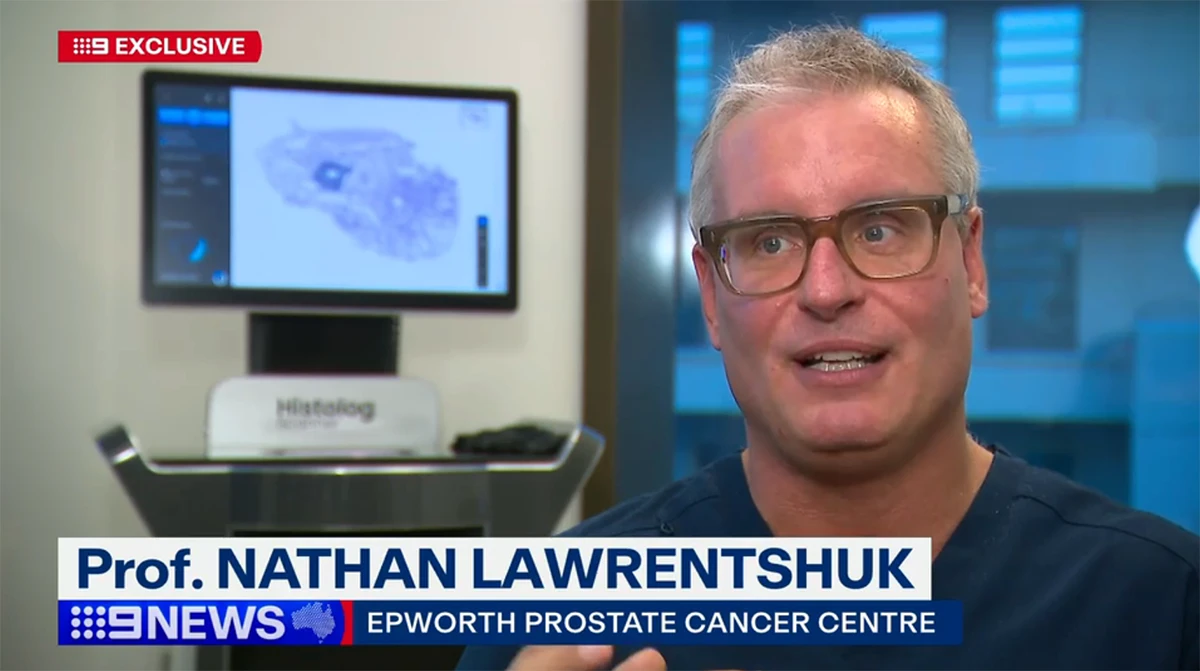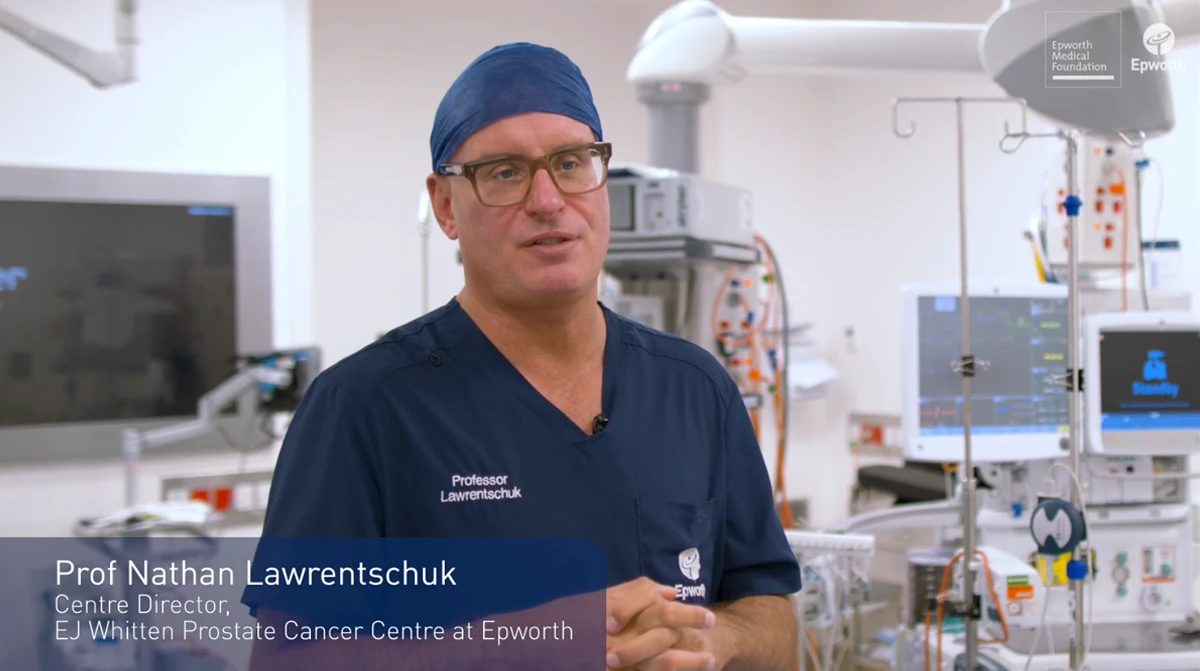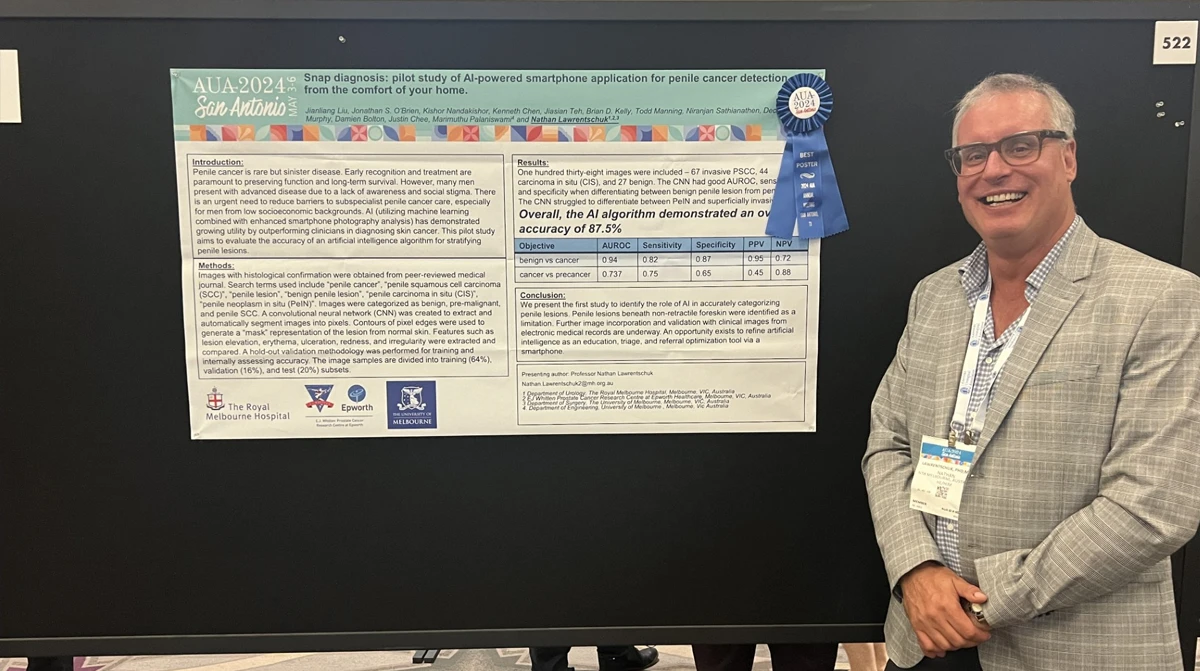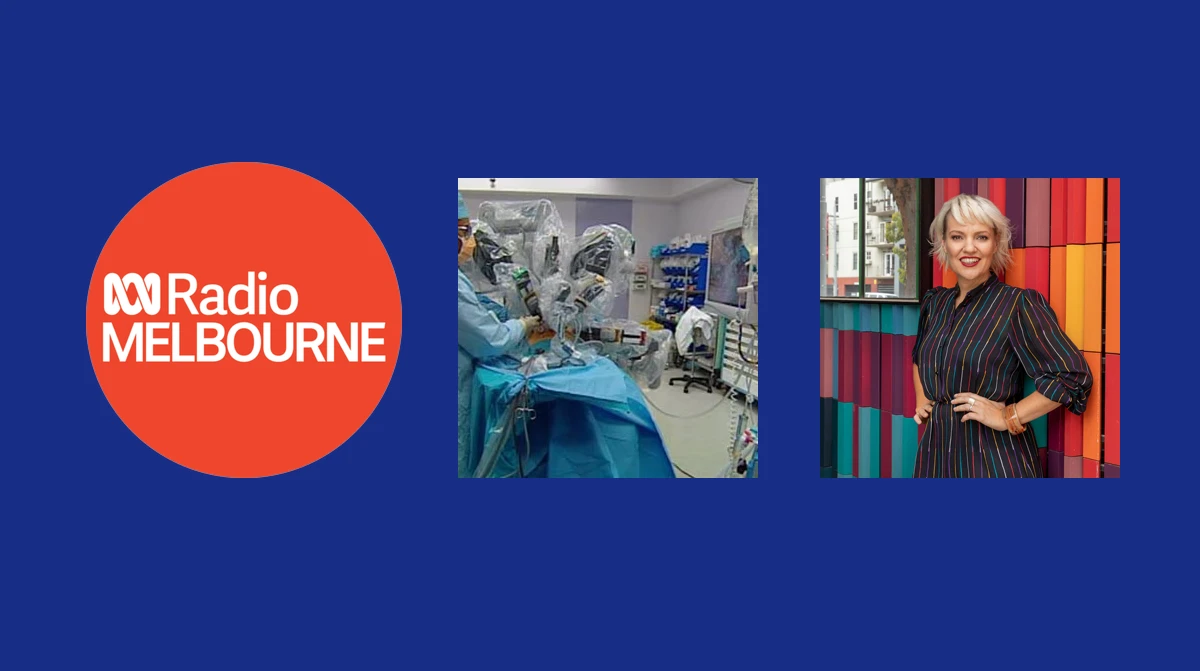Knowing Your Prostate: Modern Answers and Life-Saving Screening
Y IS IT SO - December 3 2025
In this episode of Y Is It So, Professor Nathan Lawrentschuk explains where the prostate is, how it works, and why PSA testing matters. He outlines the latest advances in prostate screening, MRI and PSMA PET imaging, active surveillance, focal therapy, robotic surgery.
Professor Lawrentschuk emphasises informed conversations with your GP, knowing your family history, and the benefits of early detection to improve outcomes while minimising unnecessary treatment and side effects.
New scanner hailed as game changer for cancer surgery
9 News - June 25 2025
"We want to take out as much prostate as we can to cure the patient, but leave enough nerves behind that they have good function afterwards," Epworth urologist Professor Nathan Lawrentschuk said.
"In real time, we can use digital images now in a matter of minutes to discover whether we've taken enough of the prostate out," Lawrentschuk said.
Donor-funded research changing lives
Epworth Medical Foundation - November 26 2024
"When we created the center, just over five years ago, our vision was number one, to bring the best treatments for men with prostate cancer. Number two, to raise awareness of prostate cancer in the community. And number three, to be involved in international high-end quality research.
We're extremely lucky to have access to treatments such as the NanoKnife because of donations and the foundation and having a research center around it. And we are best placed, I believe, to do these sorts of treatments, not because we can just do them, but because we study, learn, and get better at them."
Best Poster Presentation
AUA 2024, San Antonio, Texas - May 2024
Professor Nathan Lawrentschuk won the Best Poster Presentation in the Penile Cancer section. Nathan's research examines how artificial intelligence will accurately allow men and health workers to take photos of penile lesions to help determine if they could be cancerous, from home if required, aiding in early detection of this disease.
“It hurt like blazes"; kidney stones no laughing matter
ABC Radio Melbourne - September 13 2020
“Kidney stones do cause a lot of pain”, according to Associate Professor Nathan Lawrentschuk, Director of the E.J. Whitten Prostate Cancer Research Centre at Epworth Healthcare.
“The pain comes about when the stones, which form in the kidney, are trying to find their way down a tube called the urethra which connects the kidney to the bladder. On the way down the stones can unfortunately get stuck and of course that sends the pain receptors a bit out of kilter.”
Major breakthrough in prostate cancer treatment
3AW Breakfast Radio - July 22 2019
Associate Professor Nathan Lawrentschuk, director of the EJ Whitten Prostate Cancer Research Centre, is excited about the medical advancements.
“It doesn’t mean that there’ll be no cancer in the rest of the prostate but the idea is that those cancers that are not treated will be small and low-grade, and not grow into trouble for the man but will treat the significant cancer – the one that may in fact escape and cause troubles for that patient,” he told Ross and John.
For appointments and enquiries:
CONSULTING LOCATIONS







